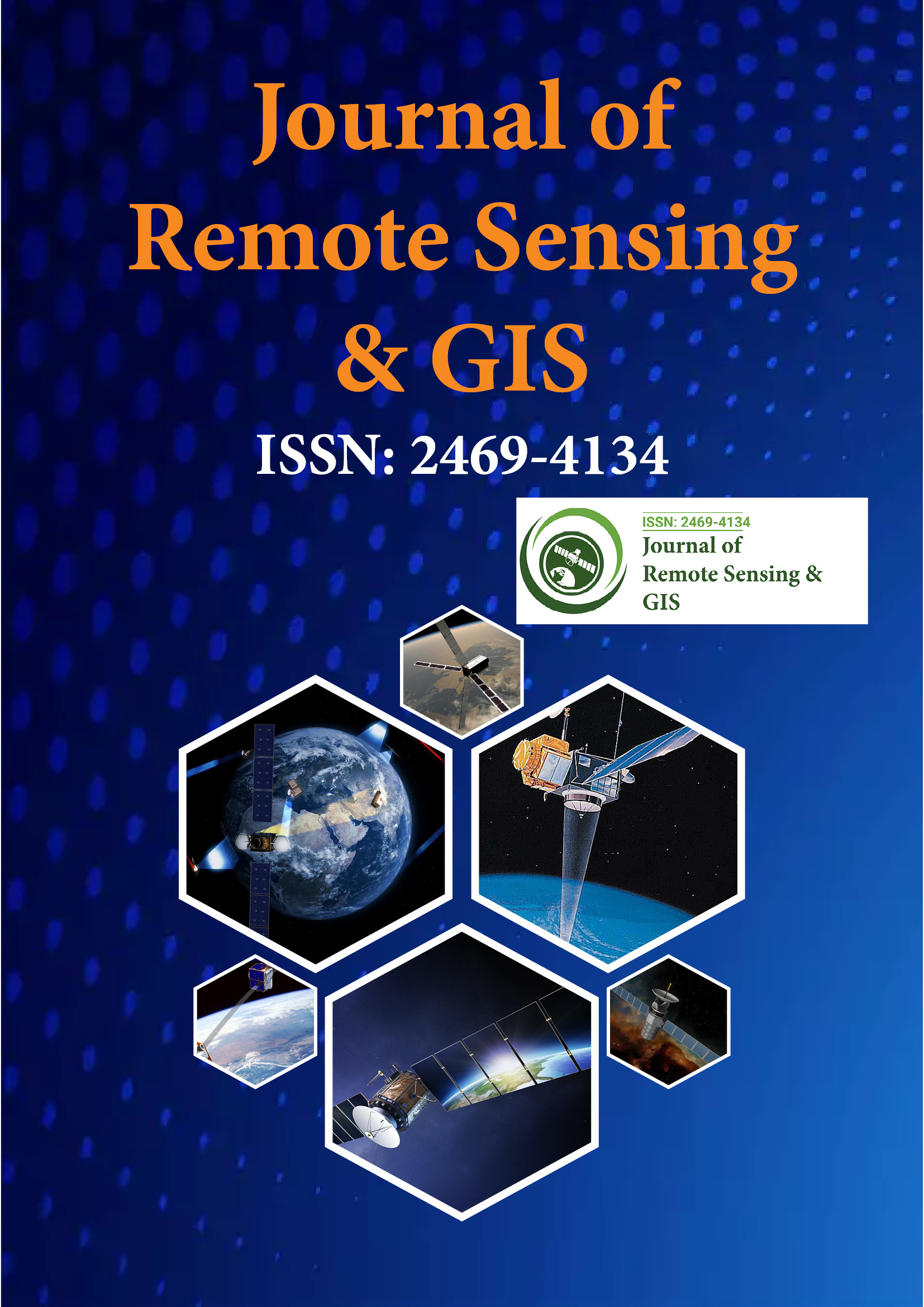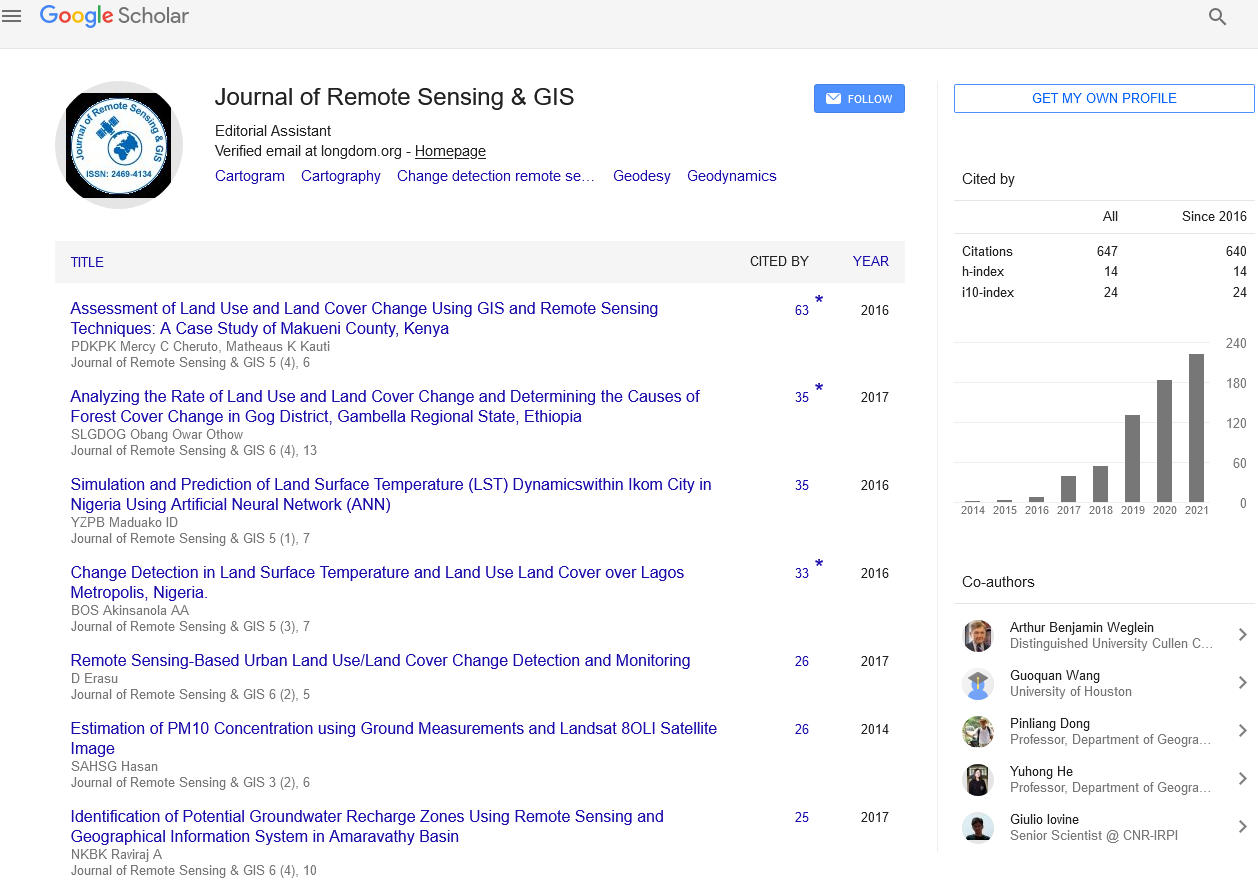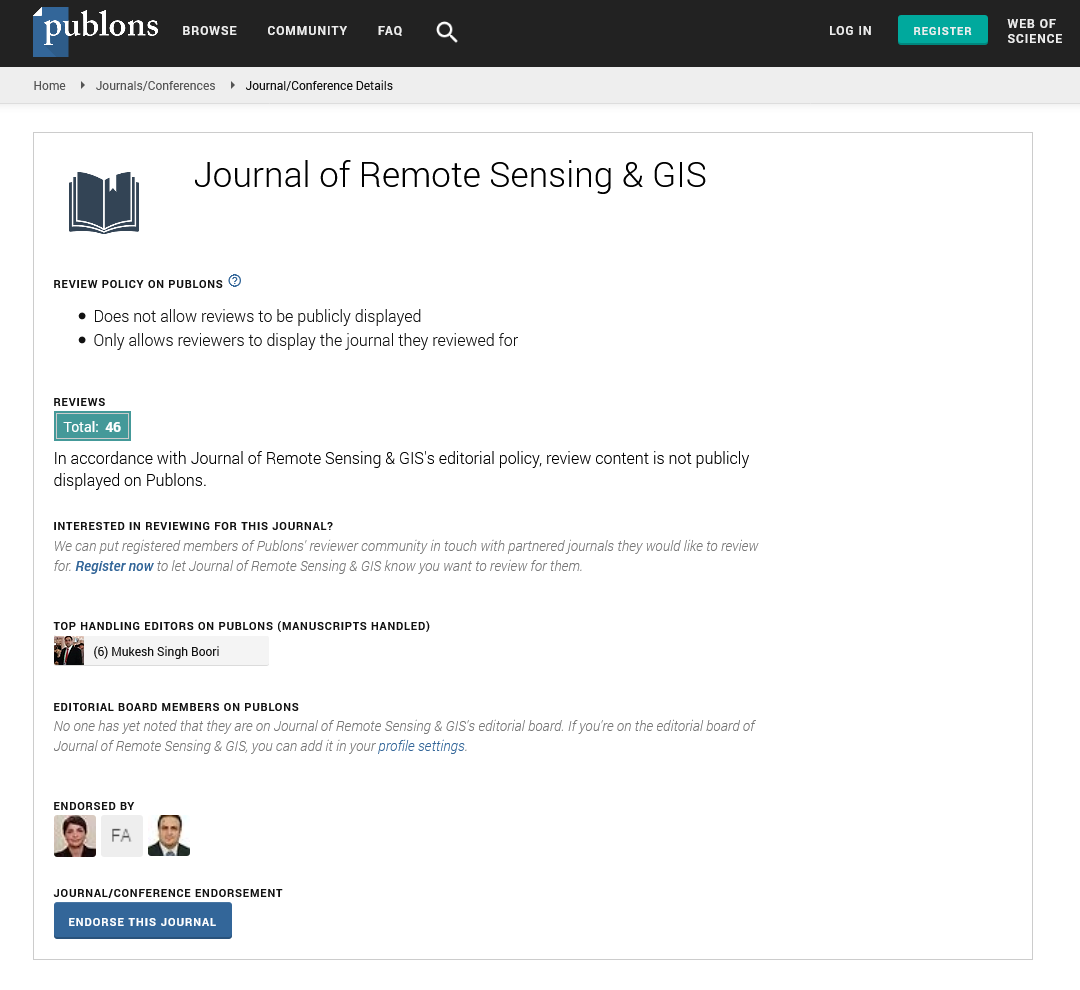Indexed In
- Open J Gate
- RefSeek
- Hamdard University
- EBSCO A-Z
- OCLC- WorldCat
- Publons
- International Scientific Indexing
- Euro Pub
- Google Scholar
Useful Links
Share This Page
Journal Flyer

Open Access Journals
- Agri and Aquaculture
- Biochemistry
- Bioinformatics & Systems Biology
- Business & Management
- Chemistry
- Clinical Sciences
- Engineering
- Food & Nutrition
- General Science
- Genetics & Molecular Biology
- Immunology & Microbiology
- Medical Sciences
- Neuroscience & Psychology
- Nursing & Health Care
- Pharmaceutical Sciences
Assessing sediment pollution off deltaic region using sediment budget as a tool: A simple geospatial approach using satellite data
3rd World Congress on GIS and Remote Sensing
September 20-21, 2017 Charlotte, USA
Mahender Kotha and Pravin D Kunte
Goa University, India
NIO, India
Scientific Tracks Abstracts: J Remote Sensing & GIS
Abstract:
There is increasing acceptance that suspended sediments represents an important diffuse source pollutant in coastal waters, due to their role in governing the transport and fate of many substances viz., nutrients, heavy metals, pesticides and other organic contaminants and because of their impacts on benthic plants and animals. Sediment pollution arresting strategies therefore frequently need to include provision for the control of mobilization and delivery of excess sediments. The sediment budget concept provides appropriate framework for managing and controlling diffuse source sediment pollution by identifying the key sources, intermediate stores and the likely sinks and helps to assess impact of upstream mitigation strategies on downstream-suspended sediment and associated contaminant fluxes. Geospatial technologies and free availability of satellite data provide solutions with simple and better understanding of such issues with greater environmental and economic impacts. The understanding of the sedimentological functioning of these units as sinks and sources of terrestrial matter helped in understanding the propagation of pollutants in the marine system. The present paper discusses the utility of the sediment budget for assessing sediment pollution explaining methodology and results specific to the deltaic region from India. Finally, it suggests the concept that sediment budget as a practical framework supports the design and implementation of sediment control programmes aimed at reducing pollution by fine sediment for understanding the propagation and thereby arresting pollutants in the marine system.
Biography :
Kotha Mahender, Ph.D in Sedimentology graduated from from Indian Institute of Technology, Bombay and a subsequently, completed a certificate course in Geoinformatics from Indian Institute of Remote Sensing (ISRO), Dehradun, India. He is currently a Professor and Head, Department of Earth Science at Goa University (a NAAC accredited university), India. His research interests include Sedimentology, Petroleum Geology and GIS and has successfully completed over 10 sponsored research projects, supervised 8 doctoral theses, published over 30 research papers in reputed journals, and has been a resource person to deliver invited talks at several institutes/universities. He is an active member of several scientific associations (life member IAS, ISRS and GSI and Founder and current member of International Geospatial Society (GSDI). He has been serving as reviewer of many reputed scientific journals.


